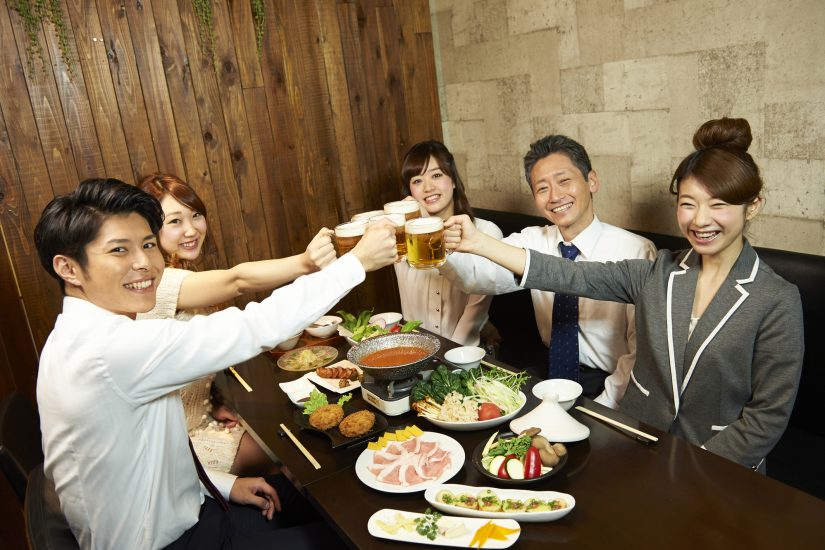Culture is a mysterious thing. It can dictate the food you eat, the games you play, even the colors you see. But for many people moving abroad to work, it can be even more confounding for not only is culture at large different, but the specifics of business and work add another layer of complexity. In this series, I’ll look at some ways to help understand the specifics of Japanese work culture, and some tips to help get along in the often confusing world of work here.
This first installment will look at some very fundamental concepts at more traditional companies that might help you understand many other issues people encounter in Japanese work environments.
It’s All About Wa
This is a tricky issue, because I don’t want to exoticize Japanese culture too much. But in many cases, the basic explanation for why people make certain choices at work is this concept of wa, often defined as “harmony.” Or, in simple English, just getting along. That’s right. The driving concept for many of the more mystifying choices in Japanese workplaces is a wish to avoid making waves.
Why do Japanese workers agree to long, often unpaid overtime? They don’t want to make waves. Why do some bosses get away with abusive behavior? Their employees are likely hesitant to cause any trouble, so they don’t complain to higher-ups. Why are so many companies so slow to change directions and make major changes? The people who think those changes should be made are low in the hierarchy and are afraid to push their ideas too hard because… Yes, that’s right, it’s wa.
While this might seem frustrating for outsiders, remember that this insistence has been part of life for your Japanese colleagues since school days, and hasn’t stood in the way of general success so far. There are ways to work within this system to find a happy medium, and if you talk to your coworkers privately they can surely help you navigate this different way of thinking in the Japanese office.
Nemawashi – Digging around the bush
One of the most confusing things for me, when I started attending business meetings in Japan, is how seemingly non-discussion oriented they were. I would often go to a meeting slated to decide on a given topic, only to find that the decision had already been made. The discussion basically consisted of people going over the details and explaining the reasons why a given decision was right. There was no real debate. The reason? Nemawashi.
This term literally translates as “digging around the root,” like when you’re moving a plant in a garden. In a business context, it means that before a big decision is to be made the person in charge of the discussion meets with everyone concerned privately to hash out any debate before the item is discussed at a meeting. Thus, meetings are performative-the debate is finished, all that needs doing is the final public expression of that decision.
This, of course, goes back to Wa. If people in a meeting actually have an objection to, say, their boss’s idea, they’re much more likely to discuss it in private that bring it up in a public meeting and be seen as causing trouble. But objections and discussion are still necessary! So, the person in charge of the item goes to hear those ideas before the meeting so that a consensus can be reached.
For someone used to more adversarial or debate-oriented meetings, this can feel almost like a waste of time. All this means is that you weren’t part of that nemawashi decision-making process, and the meeting is your chance to observe the results. Take it as a lesson in understanding the dynamics of your workplace, so that one day when you are part of the consensus you aren’t taken by surprise.
Nomunication – Drink it up!
Nomunication is a word made up of the Japanese word meaning “to drink,” nomu and the English word communication. This is less a formal concept than one that just seems to have happened, but you’ll see that it’s deeply connected to the process of consensus building and Wa as above. In Japan, workers are often invited, and expected to come, to after-work drinking parties with their colleagues, bosses and even clients/customers. This can feel like a heavy burden to many people who value their free time and privacy, but it is a tradition that is slow to die in Japan.
These parties give work teams opportunities to deepen connections and ease communication with the “free pass” of alcohol, and indeed the personal ties thus formed between employees are often viewed as important parts of management skills and employees without the bonds might even be passed up for promotion. By engaging in after-hours socializing, companies encourage coworker interdependence and teamwork (or so the theory goes).
Naturally, not everyone can drink, and the term “Doctor-stop” is often a handy excuse to get out of the alcohol portion (It means that you can’t drink on doctor’s orders) but the continued insistence on attendance is a major source of friction between older and younger Japanese workers these days.
This is one of the points where you can very easily use your foreigner status to get out of things expected of your Japanese coworkers, but you might not want to. It can be a genuinely good way to get to know your colleagues better, and enjoy your time with them more at the office as well. It’s something to think about, if you aren’t adverse to environments with alcohol.








